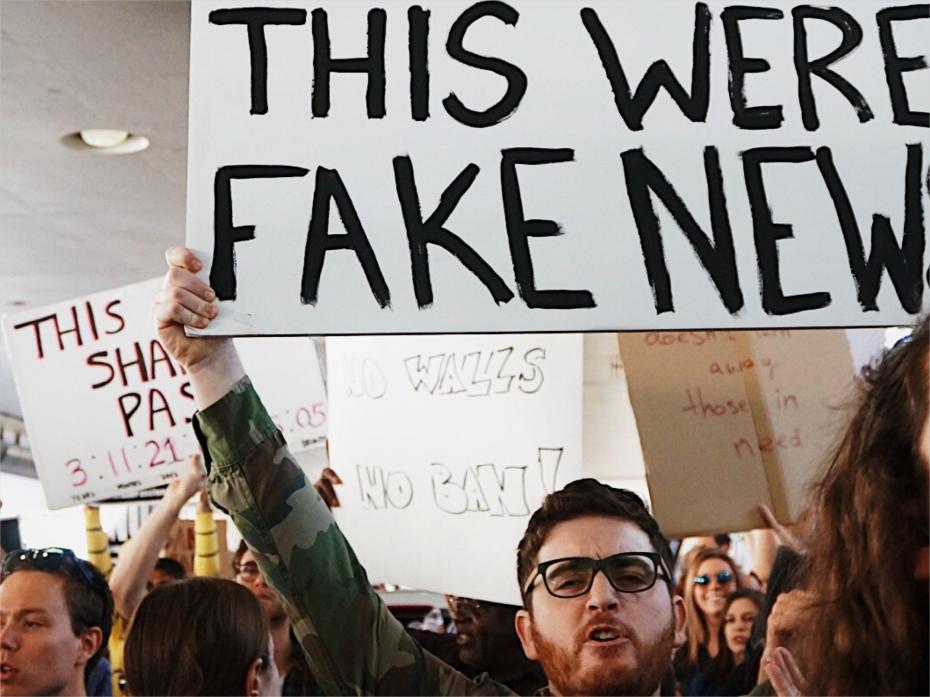As academics, we spend our days creating and evaluating evidence. We’ve been trained for years or decades to recognise the signs of a good publishing house, a predatory journal, a scrupulous analysis plan or a p-hacked results section. But what does evidence mean to people outside higher education? Or even just outside our own particular area?
Why is this important?
Let’s think for a moment about hospitals – how do doctors decide what to do to help a patient? They’ve had training. But how do their lecturers decide what to teach them? They turn to science – they base these actions and this advice on evidence that is obtained from rigorously conducted and well-reported research.
But what is the best way of getting your own carefully curated evidence out there? Twitter? Instagram? Put posters up on lamp posts? How do you demonstrate beyond all reasonable doubt that you haven’t lied about how good a medicine is? How do I know that what you say you have done is true? We need a system that helps us tell what information is “good” and what is “bad”. We have metrics that can be used to characterise how strong or weak the objectivity of research is. But who should have that power? For better or for worse, the best system we have for this is peer review. But for anyone outside higher education, peer review is a black box, an unknown entity. Even within academia, peer review can be seen as subjective, arbitrary and biased against most protected characteristics.
- Fake news and disinformation abounds, but what can universities do?
- THE Campus collection: Higher education’s role in upholding democracy
- How to teach critical thinking to beginners
Everything we do in higher education goes through peer review, whether it’s applying for institutional approval to submit a grant application, applying for funding, applying for ethical approval, governance, clearance, publishing a protocol, publishing research findings, or any other hoop we must jump through.
It’s essential that we differentiate peer-reviewed work from just any blog on the internet. With preprint servers gaining popularity and utility, the waters are getting even muddier. When information online is being read by journalists, politicians and members of the public, they need the tools to work out how reliable their source is.
The media are either unable to or choose not to accurately represent the difference between good, objective, peer-reviewed findings, and early, exploratory or overstated ones. This contributes to the muddy and chaotic way that science is represented to the public, and thus to the next generation of scientists. To improve on this, the media need to know how many different independent parties have checked that a given piece of work was well designed before it was done. They have to be able to tell whether it was ethically approved, competitively funded and rigorously designed and carried out.
So what can people working in higher education do?
We in higher education need to include the actions of institutions such as peer review in all engagement activities, whether for the public, policymakers or members of the press. I implore you, even if you don’t think it’s the most exciting aspect of your work, please give your audiences an overview of the approvals processes at each stage. Thankfully, there are resources online to help with this:
- The publishing house Frontiers publishes articles for Young Minds, aged 8 to 15 years old. All their articles are reviewed by young reviewers, under the guidance of a science mentor. You can become an editor or find young reviewers and mentor them through the reviewing process.
- Sense about Science, an independent charity promoting public access to sound science and evidence, has produced several resources for those attempting to navigate the minefield of evidence. They use platforms such as YouTube – one example is #AskForEvidence – and have produced helpful bite-sized information leaflets such as I Don’t Know What to Believe and the Evidence Hunter activity pack. These are all free to use and share in your own work.
- The National Co-ordinating Centre for Public Engagement, together with UCL Press, supports the open access journal Research For All. This journal aims to bring together researchers, policymakers, managers, practitioners, community-based organisations, schools and businesses to create high-quality research and discussion. They’re calling out for authors, reviewers and editors.
- The Conversation hosts news stories and research reports alongside analysis in the form of commentaries from experts. The public can comment and ask questions, and those questions can be answered by experts in the field. Many stories are controversial or topical and relevant to the current news. You can write articles, provide commentaries or just lurk around in the comments section.
- Metafact is a platform where users can ask questions about a given topic and verified academics, researchers and medical specialists will offer answers. A team of moderators will then rate and curate these answers before coming to a consensus decision. You can sign up to be one of these experts and spend time helping members of the public navigate the messy world of conflicting evidence.
- Finally, if you just want a little taster of why all this is important on the world stage, and to risk falling down a YouTube wormhole that could sink an entire weekend, check out Crash Course. Their short and snappy YouTube videos cover pretty much every aspect of human life, with more being added every week. Why not start with Navigating Digital Information or Media Literacy?
It’s only by empowering the public to take agency and ownership over the health of their own understanding of the field of evidence that the press and policymakers will be held to account for the role they play in the crisis in informed decision-making. Investing in society’s science capital will need buy-in from everyone to support, grow and diversify the people involved in science and have a positive influence on society. Science need no longer be the domain of just professionals and experts but of everyone.
Rebecca Dewey is a research fellow in neuroimaging in the Faculty of Science at the University of Nottingham and a member of the Universities Policy Engagement Network (UPEN).
If you would like advice and insight from academics and university staff delivered directly to your inbox each week, sign up for the Campus newsletter.




comment